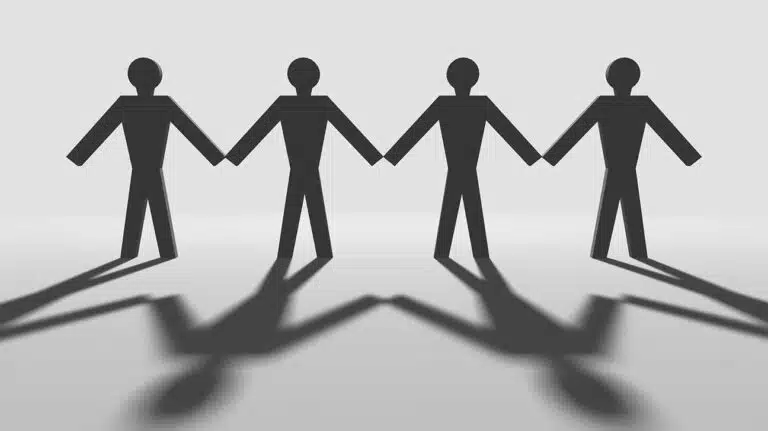What Is Co-Dependents Anonymous?
- What Is Codependency?
- Who Is CoDA For?
- Is CoDA A Twelve-Step Program?
- How To Find A Co-Dependents Anonymous Meeting
- Ark Behavioral Health

Co-Dependents Anonymous, also known as CoDA or Co-Dependents Anonymous World Fellowship, is a peer support group and 12-step program for people who share a desire to build functional and healthy relationships with others.
CoDA’s first meeting took place in 1986 in Phoenix, Arizona, welcoming 30 people at its first meeting and 100 by the end of a month. It spread rapidly to 120 groups within a year and maintains around 1000 meetings in the US with branches in more than 60 other nations.
What Is Codependency?
CoDA avoids defining codependency, and the condition has no official established definition or diagnostic criteria listed in the DSM or ICD.
Most common definitions of codependency describe a pattern of imbalanced or toxic relationships where one person enables or promotes another person’s self-destructive behavior while developing or acting from low-self-esteem, self-sacrifice, and emotional disenfranchisement.
Codependency commonly impacts the loved ones of a person who lives with addiction, and is thought to often stem from behaviors learned by the children of codependent or dysfunctional parents.
Who Is CoDA For?
If you feel that codependency is interfering with your ability to form healthy, loving relationships with others, CoDA is open to you.
There are no other restrictions, as the group welcomes all those who are on a journey of self-discovery or self-help regardless of age, race, gender, religious conviction, or means.
The only requirement, as stated above, is for all members to have a desire for healthy and loving relationships.
Am I Codependent?
Those in codependent relationships tend to have certain features in common, with one partner (the dependent) often indulging in addictive or compulsive behaviors while the other (the caretaker or codependent) enables this behavior at the cost of their own well-being.
Classic signs of codependency can include:
- constant people pleasing
- being unable to set boundaries
- poor self-esteem
- excessive patterns of caretaking
- high reactivity, low autonomy
- indecision
- poor communication
- poor sense of self
- clinginess or neediness
- sustained relationship stress
Is CoDA A Twelve-Step Program?
Like Alcoholics Anonymous, CoDA recovery meetings are twelve-step recovery programs. These steps, which are found in CoDA literature, are as follows:
- We admitted we were powerless over others – that our lives had become unmanageable.
- We came to believe that a power greater than ourselves could restore us to sanity.
- We made a decision to turn our will and our lives over to the care of God (as we understand God/our higher power).
- We made a searching and fearless moral inventory of ourselves.
- We admitted to God/our higher power, to ourselves, and to another human being the exact nature of our wrongs.
- We were entirely ready to have God/our higher power remove all these defects of character.
- We humbly asked God/our higher power to remove our shortcomings.
- We made a list of all persons we had harmed, and became willing to make amends to them all.
- We made direct amends to such people wherever possible, except when to do so would injure them or others.
- We continued to take personal inventory and when we were wrong promptly admitted it.
- We sought through prayer and meditation to improve our conscious contact with God/our higher power, praying only for knowledge of His will for us and the power to carry that out.
- We have had a spiritual awakening, we tried to carry this message to other codependents, and to practice these principles in all our affairs.
Note that while CoDA is a spiritual organization, it is not a religious one. Those who attend are free to interpret their higher power however they see fit.
How To Find A Co-Dependents Anonymous Meeting
To locate a CoDA meeting near you, visit www.coda.org and select the MEETINGS heading. From there you can search by your city or zip code.
Although CoDA is open to anyone, some meetings are limited to women, men, LGBTQ+ individuals, or others. You can also look at phone or online meetings using Zoom or skype if there are no suitable in-person meetings in your area.
What To Expect
Most CoDA meetings involve small groups and last for around an hour or so.
While you can ask questions freely before or after the meeting, the meeting time itself is reserved for introductions, readings (daily meditations or the twelve steps and twelve traditions), a group prayer, and for participants to share their thoughts, feelings, and personal stories.
You’re not required to speak during a meeting, but you will be required to avoid cross talk while others are sharing. You may also be asked to sign a sheet with your name and phone number, though this is also not required.
Ark Behavioral Health
Addiction and other compulsive behaviors can have a deep impact on those you love. And while CoDA and other peer support groups can help, they are no substitute for professional addiction treatment and mental health services.
To learn more, please contact Ark Behavioral Health today.
Written by Ark Behavioral Health Editorial Team
©2024 Ark National Holdings, LLC. | All Rights Reserved.
This page does not provide medical advice.
Co-Dependents Anonymous, Inc. (CoDA) - Twelve Steps
Co-Dependents Anonymous, Inc. (CoDA) - Your First Meeting
Questions About Treatment?
Ark Behavioral Health offers 100% confidential substance abuse assessment and treatment placement tailored to your individual needs. Achieve long-term recovery.
100% confidential. We respect your privacy.
Prefer Texting?
Our friendly support team is here to chat 24/7. Opt out any time.







 Learn More
Learn More








